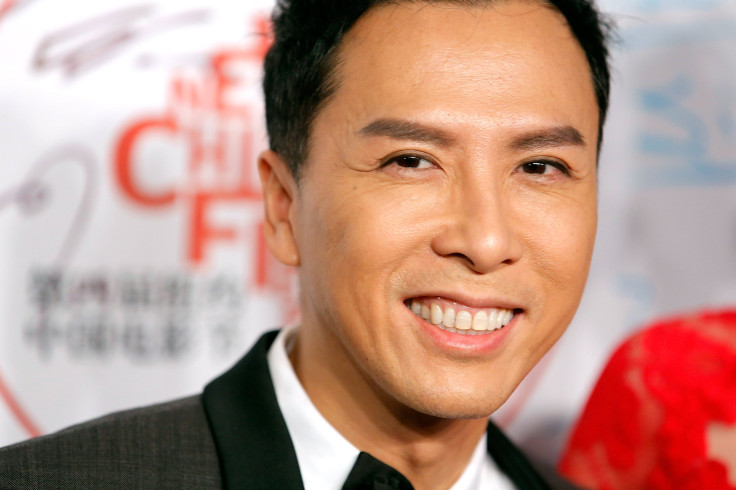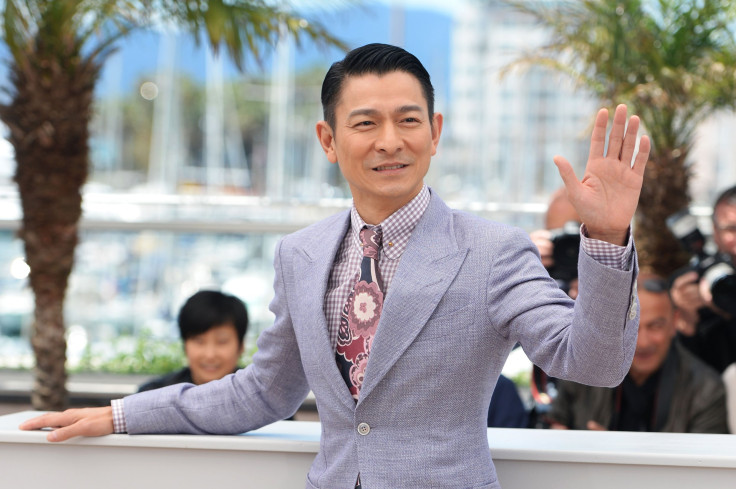Chinese Movie Stars Are Seeing Salaries Triple Thanks To China’s Hollywood Ambitions

LOS ANGELES — Many Americans haven’t got a raise in years, but that’s not a problem for some of the biggest actors in China.
The domestic box office is not only surging there, promising to become the world’s biggest as soon as next year, but Chinese studios are also aggressively looking to prepare films for export. That’s made China’s brightest stars — especially those with English skills — hot commodities.
“Chinese stars’ rates have gone up three times in the last year, for the big mainstream actors,” Sky Moore, a partner at the law firm Stroock & Stroock & Lavan in Los Angeles who works closely with Chinese studios, told International Business Times.
Moore said “sticker shock” has been a real issue for Chinese studios, particularly in paying for behind-the-camera talent. But competing for the best talent in the English-language space means shelling out a little more.
Stephen Chow’s “The Mermaid” made more than $500 million in China alone this year — the country’s biggest-ever movie — seemingly enough to support plenty of A-list talent. Yet studios have been slow to pony up.
“It’s absolute sticker shock,” Moore said. “I live through this every day. The prices are so different in China.”
But things are beginning to change. In July, the state-run China Daily reported on the rapid rise in pay of several Chinese stars, and that trend has continued to accelerate, Moore said. Huang Bo, a major star in China, saw his pay doubled to 30 million yuan, about $4.8 million at the time. He played a main role in Chow’s “Journey to the West,” which made $200 million in China. Chow, who acts as well as directs, went from 30 million to 50 million yuan, or a little more than $8 million. And Chow Yun-fat got a 50 percent bump to 36 million yuan, around $5.8 million.
But, while China’s marquee actors aren’t exactly struggling, their salaries pale in comparison to megawatt Hollywood stars. For instance, Chow Yun-fat’s $5.8 million falls on the lower end of what Hollywood A-listers earn, even though he and the likes of Stephen Chow are responsible for some of the biggest box office hauls in Chinese film history. Their counterparts across the Pacific Ocean make between $5 million and $20 million per movie, and some go well beyond that.
Robert Downey Jr. — who plays Iron Man in Walt Disney’s Marvel Cinematic Universe films, including “Captain America: Civil War,” which opens next month — topped the rich-actor list with $80 million in earnings last year. Hong Kong cinema icon Jackie Chan, a fixture on Chinese screens, actually placed second with $50 million, but a lot of that came from his equity interest in many of the motion pictures he’s in, which in itself seems to indicate there’s plenty of money in Chinese movies to keep giving actors more raises.

A lot of the upward pressure on Chinese actor salaries is driven by the domestic box office, which soared almost 50 percent to $6.8 billion in 2015, and the bigger slices of a bigger pie individual films can take from it. But there’s also a big push to develop crossover English-language movies, and not a huge pool of crossover stars to choose from, which improves the negotiating position of Chinese actors with that kind of potential.
One of the first of those films to come out will be “The Great Wall,” which opens in China in December and in the U.S. in February. It stars Matt Damon and veteran Chinese actor Andy Lau, who will be making his debut in a Hollywood movie. Zhang Yimou, who orchestrated the opening ceremony at the 2008 Beijing Olympics, will be directing his first production in English. The budget has been confirmed as $135 million, so it’s not exactly a timid experiment.
While there have been successes such as “Crouching Tiger, Hidden Dragon,” which made $128 million in the U.S. even with subtitles, Moore said the Chinese language is just too much of a handicap to play well worldwide. Anglophone countries such as the U.K. and Australia constitute a significant piece of the international box office, and even in nations such as France and Germany, a lot of the people who see films in theaters know enough colloquial English to get by. And that’s why the drive for exportable English-language fare from Chinese studios should continue to get resources thrown at it.
“Up to now, they’ve been very Chinacentric,” Moore said. “They’re getting their sea legs and they will find the balance of Chinese cultural element that plays around the world. It may take time. English is now mostly universally understood by the moviegoing public, so that’s the key.”
That should only fatten the pockets of actors such as Donnie Yen, an icon of Chinese and Hong Kong martial arts cinema who grew up in Boston and speaks mildly accented but fluent English. Yen told the South China Morning Post in December he’s planning to focus more on foreign films.
Yen has a leading role in the next movie in the “Star Wars” canon, “Rogue One: A Star Wars Story,” set to hit theaters in December. After “The Force Awakens” disappointed in China despite smashing records pretty much everywhere else, Disney could use Yen’s proven box office appeal in the Middle Kingdom to bring hundreds of millions of potential fans into the “Star Wars” orbit.
Yen would not confirm rumors to the SCMP that he was the highest-paid actor on the film. That may only be a matter of time.
© Copyright IBTimes 2025. All rights reserved.





















